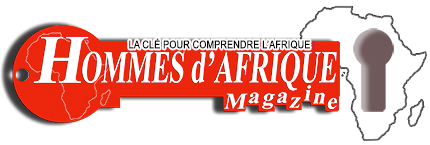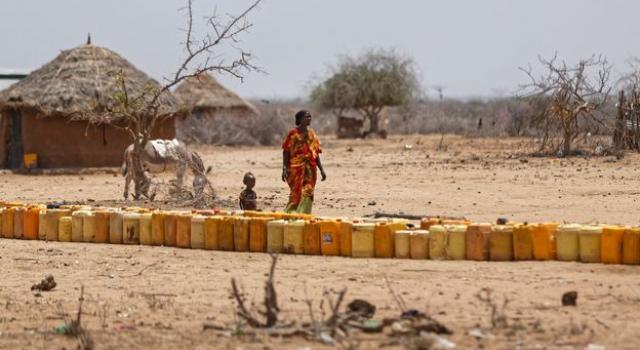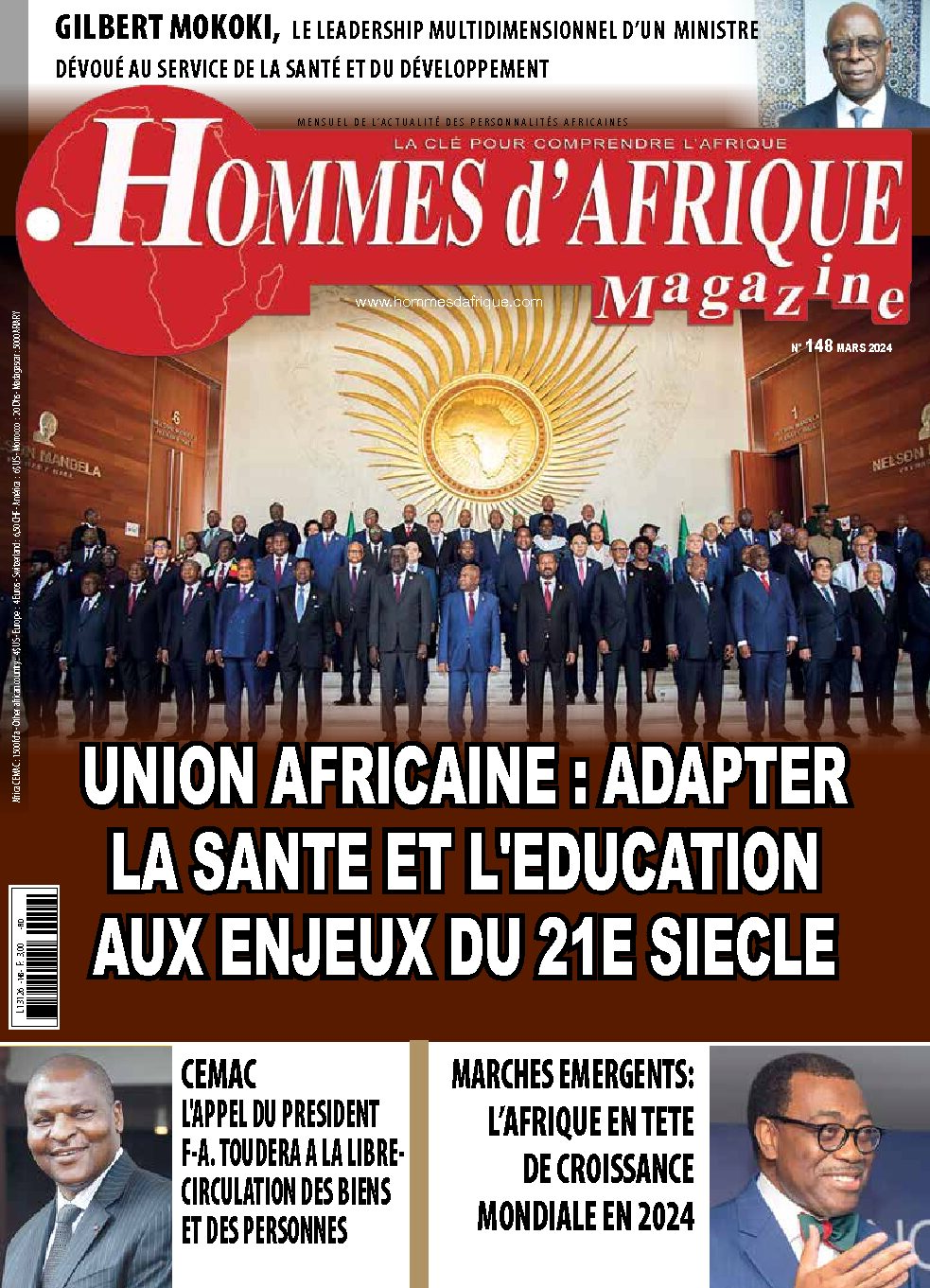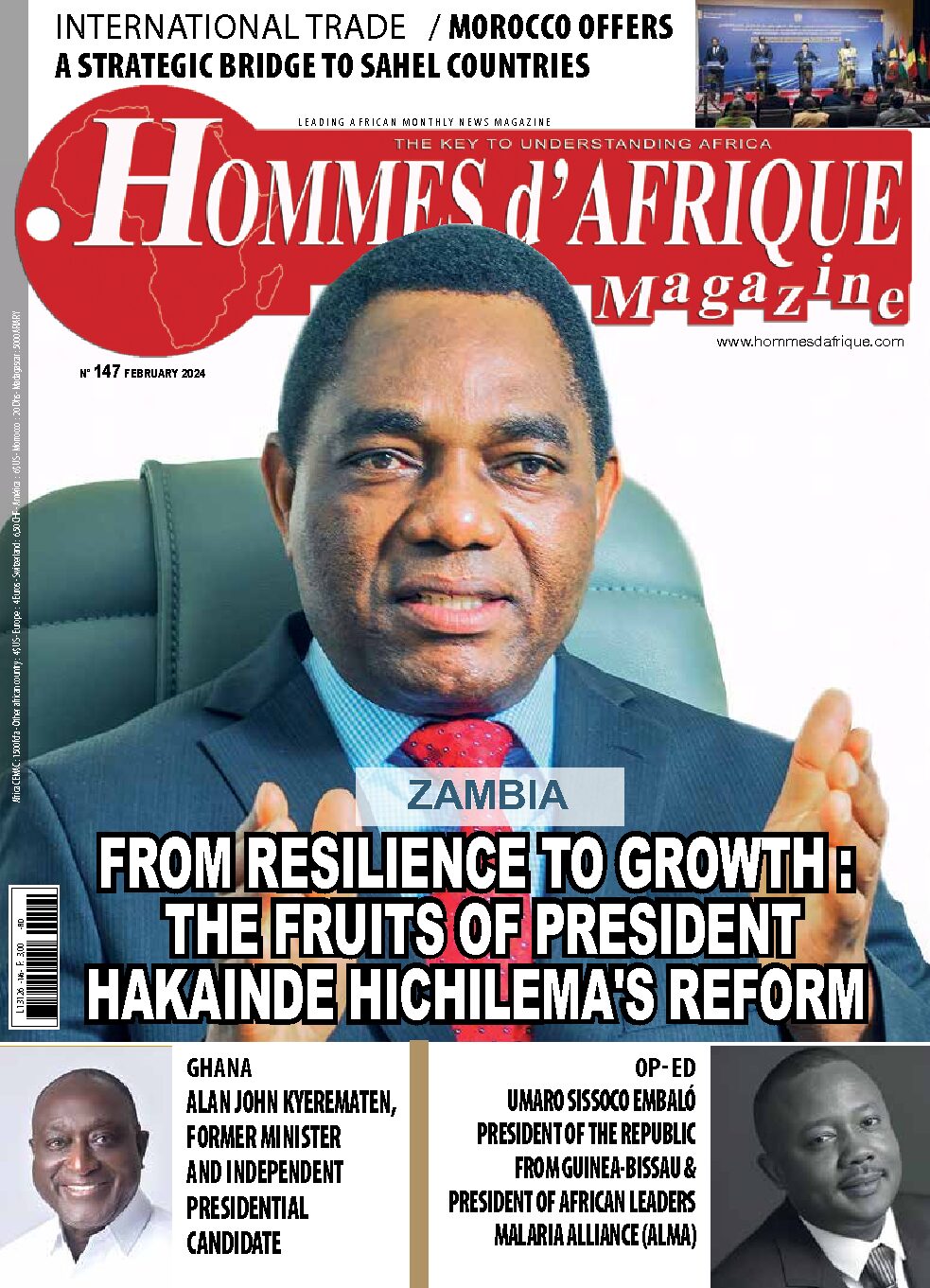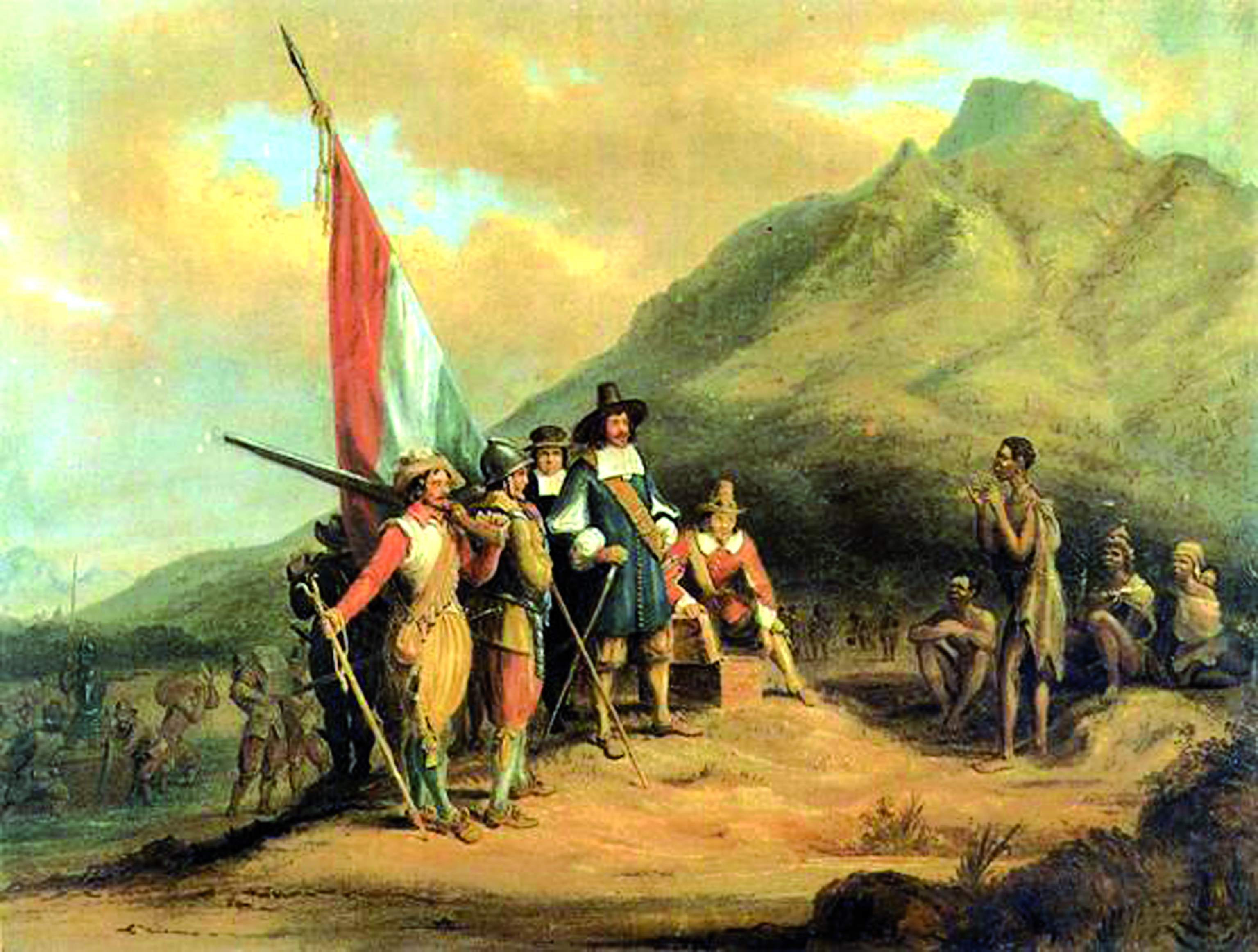9 DATES OF THE 9TH MONTH

On 28 September 1829, at exactly 33-year-old, David Walker published his book: “Appeal in four articles, together with a preamble to the coloured citizens of the world, but in particular, and very expressly to those of the United States.” This groundbreaking book called slaves to rise and conquer their liberty.
He was one of the rare black businessmen of his time in Boston where
he lived. He was born in Wilmington, North Carolina, on 28 September
1796, the son of a slave father and a free mother.
After having witnessed the suffering of his people all over the United
States where he traveled extensively, he wrote and published its appeal,
a revolutionary call for liberation. A future issue of Hommes d’Afrique
Magazine will come back to that call. It will offer a special report on
David Walker, who, like Marcus Garvey a century later, opened the Black
people’s view on the global nature of the aggression against them.
Dr. Claud Anderson speaks of David Walker in the “Heroes and heroines” chapter of his 1997 book, “Dirty Little Secrets: about black history, its heroes, and other trouble- makers.” He writes:
“Urging that his brothers show no fear because God was on their side, Walker contended that any man not willing to fight for his freedom deserved to remain in chains and even to be butchered by his captors. Insisting that death was prefe- rable to slavery, he said that if an uprising occurred, slaves must be willing to kill or be killed. A man who refused to defend himself was worse than an “infidel” and “undeserving of sympathy.” Apparently, Walker’s veiled threat or challenge did not fall on deaf ears.”
How did the white slaveowners society
react?
“In response to Walker’s statement, the
state of Georgia offered a $10,000 reward
for Walker if taken alive and $1,000 if
dead.” Less than a year after the release of
his book, David Walker was found dead
in the doorway of his home. A mystery.
It was on 6 August 1830. Had he been
assassinated?
*****
In September 1861, President Abraham
Lincoln revoked General Fremont’s eman-
cipation proclamation that would have
freed slaves. He did it again in March 1862 against General Hunter’s
emancipation. This cast doubt on Lincoln reputation as the slaves’ libe-
rator that historians have passed upon us.
The doubt is all the more legitimate because, in August 1862, the New
York Tribune published an article titled “The Prayer of Twenty Millions”.
Horace Greeley, the article’s author, challenged the Lincoln whose posi-
tion about slavery remained ambiguous: are you for or against slavery?
Greely asked in substance.
Lincoln responded in the same newspaper on 22 August 1862. A reply
that not only reinforces doubt, but shows that freeing slaves was never
among Lincoln’s priorities:
«If I could save the Union without freeing any slave, I would do it, and if
I could save it by freeing all the slaves I would do it; and if I could save it
by freeing some and leaving others alone, I would also do that.»
In other words, on freeing slaves, Lincoln acted not as a principled man,
but as an opportunist.
On 8 April 1864, the United States Senate passed the Thirteenth
Amendment to the United States Constitution to abolish slavery. The
U.S. House did the same on 31 January 1865, and the amendment was
finally adopted on 6 December 1865.
Lincoln got the aura of slaves’ liberator all for himself. But is that aura
deserved? Many people had done more for that liberation than him, but
history has forgotten them, because of a sycophant tendency among
historians that bends them to focus on men of power, even though these
men’s contribution to social reforms is at best, minimal.
As the U.S. President and, moreover, as the winner of the bloodiest war
ever fought on the U.S. soil, Lincoln got all the moral credit the abolition
of slavery brought. A majority of Americans were all the more willing
to give Lincoln that credit because he had preserved what they consi-
dered the condition of their country’s wealth and power: the union of
the States.
That Lincoln’s credit is unjust for the courageous heroes, all around the
world, including white folk, who sometimes lost their lives, because, as
men or women of principle, they stood against slavery, called for the liberation of the slaves. Among these men and women in the USA, are the white authors of the “Germantown Friends’ Protest Against Slavery”, published in Germantown, Pennsylvania, on 18 February 1688, that was 177 years before Lincoln’s 13th Amendment.
One can also cite David Walker. On 28 September 1829, he published a book tit- led: “Appeal in four articles, together with a preamble to the coloured citizens of the world but in particular and very expressly, to those of the United States of America.” More on David Walker in this “It Was in…” section.
Two historians do not only doubt the sin- cerity of Lincoln’s emancipation. In their 2011 book, “Colonization after emancipa- tion: Lincoln and the movement for black resettlement”, they show that Lincoln never wanted to liberate the slaves. His plan was to empty the U.S. of the black population by deporting all the slaves in the Caribbean and different colonies in Southern America or of the British Empire.
Dr. Claud Anderson is even clearer about Abraham Lincoln’s liberator reputation. Recalling Lincoln’s revocation of generals Fremont’s and Hunter’s emancipation, Dr. Anderson said: “there is absolutely no reason for Black Americans to be honoring and
loving President Abraham Lincoln who was no different from any other
White person of the 1800s.”
He added:
“President Abraham Lincoln’s interest was strictly in saving the Union of
States. ` The welfare of five million Black slaves was only little more than
a logistical problem. Lincoln considered shipping all Blacks in America
back to Africa or to the Caribbean. He even considered establishing a
Black colony in Texas or Central America.”
******
“The 23, 24 and 25 September 1940, in carrying the war to Dakar,
made West Africa the focal point of the world. It is no exaggeration to
say that Pierre Boisson held the fate of Africa in his hands and perhaps
that of hostilities.
“To learn from these events the lesson they entail, it has seemed to us
indispensable beforehand, to present a complete and impartial account
of those events. The three days of September 1940 are far from us now,
and the silence about them, increased by Pierre Boisson’s premature
death, prior to the public explanation that the debates of his trial would
have given birth, if it had come before the High Court has done little to
WA LKER’S
APPEAL, IN FOUR ARTICLES;
together with
A PREAMBLE
tothe
coloured citizens of the world,
but in particular, and very expressly, to those of
THE UNITED STATES OF AMERICA,
WRITTEN IN BOSTON, STATE OF MASSACHUSETTS, SEPTEMBER 28, 1829.
THIRD AND LAST EDITION,
with additional notes, corrections, &c.
Boston :
REVISED AND PUBLISHED BY DAVID WALKER.
………………
1830.
N° 121 september – October 2019
7
throw the veil of oblivion or ignorance into the Dakar affair.”
Above is an excerpt of a book French authorities banned a few after
its December 1949 publication. Daniel Chenet, the author, narrates
events that Charles de Gaulle, the winner who emerged at the end of the
German occupation of France, did not want to remember. Because the
events are the three-day war he waged and lost, against Pierre Boisson in
Dakar, Senegal, on the 23, 24 and 25 September 1940.
The book’s title is “Qui a sauvé l’Afrique?” (Who has saved Africa?)
Here, “Africa” means “French Africa,” so that the title asks the question:
who has saved the French colonial empire in Africa? Or in other words:
who has saved France? For the author, undoubtedly, this savor is Pierre
Boisson, not Charles de Gaulle.
The book describes de Gaulle as a puppet in Winston Churchill’s hand.
Then UK Prime Minister Churchill had sent de Gaulle with the Royal
Navy to conquer Dakar. But Pierre Boisson, then the colonialist gover-
nor of that city, had remained faithful to Marshal Petain’s Vichy govern-
ment. This government had sentenced Charles de Gaulle to death.
Pierre Boisson saw de Gaulle as a fugitive and a traitor. He was about
to capture if not killed de Gaulle, during the 23 to 25 September 1940
battle. Luckily for de Gaulle, the UK Royal Navy heavily intervened to
rescue de Gaulle.
The casualties were heavy. According to Daniel Chenet (page 198), over
a thousand British soldiers were killed. On the French side: around a
hundred soldiers died; 182 were wounded; 84 civilians killed, 197 woun-
ded. Eight planes were shot down. Numerous warships were destroyed.
*****
On 1 September 1971, a referendum in Egypt, Libya, and Syria, led to
the creation of the Federation of Arab Republics.
This federation conceived itself as the first step towards the powerful
state that will unite all the Arab majority countries in Africa and in the
Middle East.
The three-state federation started on 1 January 1972. Not only could
it not expand to integrate any other country, but dissensions led to its
collapse on 19 November 1977.
*****
On 5 September 1978, then US President Jimmy Carter, Egypt’s
President Anwar Sadat and Israel Prime Minister Menachem Begin,
started in Camp David in the USA, the Egypt-Israel peace talks.
Soldiers assassinated Sadat in Cairo on 6 October 1981. They considered
him a traitor, for having signed peace with Israel. Sadat had been the
third president of Egypt from 15 October 1970 up to his death. Before
that, succeeding Gamal Abdel Nasser, he was the acting president from
28 September 1970 to 15 October 1970. And before that, he had been
Prime Minister from 26 March 1973 to 25 September 1974. Sadat was
born in Monufia, in the then Sultanate of Egypt, on Christmas day of
1918. He was 63.
The 6th Israeli Prime Minister, from 21 June 1977 to 10 October 1983,
Menachem Begin died at 79 on 9 March 1992, after a heart attack in his
house on six days earlier. He was born in the Russian Empire city of Brest
on 16 August 1913.
James Earl Carter, Jr., was the 30th President of the United States, from
20 January 1977 to 20 January 1981. Born on 1 October 1924 in Plains,
Georgia, in the USA, he is 95 years. To this man who not only gave peace
a chance, but sincerely engaged in making it possible among the worst
enemies. Hommes d’Afrique Magazine wishes long life to Jimmy Carter.
*****
On 27 September 1983, Curnick Muzuvukile Ndlovu was freed,
after 19 years in the Robben Island prison in South Africa. In 1964, the
Apartheid regime sentenced him to 20 years in jail for his activities as
Secretary of the South African Congress of Trade Unions (SACTU),
member of the African National Congress (ANC), and leader of the
ANC military branch, the uMkhonto we Sizwe. *****
On 6 September 2011, Dr. Claud Anderson, one of the most perspi- cacious teachers contemporary black peoples have, wrote a letter to then U.S. President Barack Obama. The object of the letter was jobs creation in the USA. Here are some of the letter’s recommendations:
“Establish a Revitalization Development Fund, a pot of money that can be used for economic development in our ten most economically dis-
tressed urban inner-cities. The funds could be used to finance building businesses and industries in which residents can become stakeholders – owners and workers. Community pride, jobs, and economic well-being will follow. Revenue generated from other recommendations in this plan can be used to finance the Revitalization Development Fund.
“Aspiring entrepreneurs in these communities would have access to the Revitalization Development Fund through established community banks in the ten largest urban areas through low interest, long term, revolving loans. The banks would be stewards of the allocated funds, evaluating, dispensing funds to, and monitoring projects.
“A National Infrastructure Revitalization Project that upgrades water and waste disposal systems and repairs streets, highways and bridges in urban areas as well as dams in rural areas is critically needed and could directly employ thousands of workers. Many sewage disposal plants are inadequate and impede business and industrial growth. Water pipes that carry drinking water in urban areas are crumbling and creating health hazards.
“A Mobile Disaster Corps should be established under FEMA to pro- vide supportive assistance to communities impacted by the increasing number of man-made disasters such as oil spills, and climatic generated natural disasters such as hurricanes, tornados, forest fires, floods, and earthquakes. Unemployed youth, from college graduates to inner-city residents, could be employed, trained and temporarily dispatched to work in disaster areas. Like the Peace Corps, this program could aid people in distressed areas and offer jobs to the unemployed.”
*****
On 21 September 2013, Al Shabaab terrorists killed more than 60
people and wounded around 200, in their attack of the Westgate shop-
ping mall in Kenya. At least 48 Kenyans were assassinated.
Hommes d’Afrique Magazine remembers those innocent victims.
Africans must never forget them. Keeping the memory of their people
that a savagery originated around one and a half millenary from the
Arabian Peninsula sand, has been massacring, is the least Africans must
do.
Secondly, they have to stand for their civilization. Terrorists are activated
by ideas. It is a mistake to fight them only on the military or the police
fronts. This mistake explains the relative failure of all the “wars on terror”
waged during the past four decades.
Even fighting them on the social front won’t be enough. Proponents of
this social fight justify themselves by saying “terrorism prosper where
poverty and inequality exist.» That’s partly true. Actions, public and
private, but most forcefully public actions, must always tend to reduce
poverty and inequality. Poor people in an environment where they see
wealthy ones may be tempted to commit crimes.
But, there is no theorem according to which if A is poor, then A is or
will become a terrorist. For centuries, hundreds of millions of poor and
impoverished people have been living in Africa, without a single act of
terrorism. Without even a thought of such an act. Without anything
close to a suicide attack. Africans love life.
Militaro-police offensive against terrorists is necessary. Assaults against
poverty and inequality in society are imperative. Yet, the only weapon
that can eliminate terrorism is civilization. Civilization belongs to the
realm of ideas, spirituality and the mental attitude that motivate human
action. That is why John Maynard Keynes is right when, in the conclu-
sion of his 1936 book: “The General Theory of Employment, Interest,
and Money,” he observes that “it is ideas, not vested interests, which are
dangerous for good or evil.”
Terrorists’ ideas are dangerous, and, for evil. They are evil! Foreign evil!
That has forced itself into Africa! That has nothing African. Terrorists,
their spirituality, their mentality, their ideas, do not belong to Africa’s
civilization. Where are African leaders who stand for Africa’s civilization
nowadays?
*****
On 8 September 2018, the Egyptian tribunal sentenced to death 75
among the more than 700 people it judge. They had already some five
years in prison, for the pro-Muslim Brotherhood demonstrations in
2013, in particular for the sit-in at Rabaa Al-Adawiva Square in Cairo.
Prison is not part of the African civilization. Neither is, the death sen-
tence.
